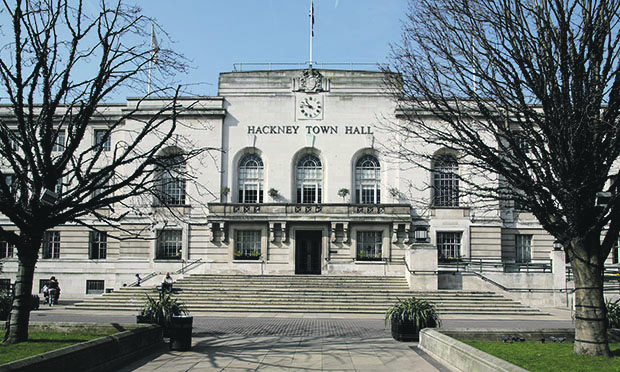Council ‘reflecting’ on implications of City Hall traffic scheme judgment

The Town Hall is continuing to “reflect” on the implications for its own wide-ranging traffic calming measures of a recent High Court judgment finding that City Hall and Transport for London’s (TfL) proposals to restrict vehicular access across London had potential adverse impacts on the elderly and disabled.
Mrs Justice Lang’s ruling on the Streetspace Plan and associated guidance to London’s traffic authorities, including Hackney, found that there was no evidence of a public sector equality duty (PSED) having been applied before the plan’s announcement, with the embedding of the guidance on equalities creating “a risk that local traffic authorities would act upon Plan proposals that discriminated unfairly against the elderly and the disabled.”
TfL’s guidance on equalities, accessibility, security and inclusion was criticised by Mrs Justice Lang as “[falling] far short of the detailed and conscientious scrutiny which was required” if intended as a discharge of the PSED, and is replicated almost to the word in Hackney’s own emergency transport plan, which does stress that officers “ensured that all impacts on protected characteristics have been considered at every stage of the development of this programme.”
Responding to questioning on the topic by Conservative opposition group leader Cllr Michael Levy this week, Hackney Mayor Philip Glanville: “All of us were disappointed by the legal decision last week. We in the council are reflecting on that and taking it incredibly seriously.
“I think we had a really considered approach in the council both to consultation and engagement and equalities under [former transport chief] Cllr Jon Burke and now. What we want to do is obviously reflect on that legal judgment. I know there is talk of TfL appealing, and I know there are meetings taking place across London to get that right.
“[Equalities lead] Cllr Carole Williams and I are really committed to ensuring that equality is at the heart of what comes next, and making sure that we build on the equality impact assessment and the references to the PSED that officers have already taken, and that we have that consistent approach.
“I really respect and value the black cab industry in London, the contribution it makes to our public transport system, the work that they undertake on behalf of Taxicard and I am now as chair of London Councils’ transport & environment committee acutely aware of [subsidised travel scheme] Taxicard and its key and critical role for some of our most vulnerable and diverse communities during this pandemic and before.”
Glanville told the Conservative leader that he would be able to say more when more “legal clarity” had been achieved, adding that “it would be wrong to prejudge that work.”
In Mrs Justice Lang’s judgment, she found that prior to issuing the guidance to local authorities for use in their own schemes, “no investigation or consideration of the adverse impacts” of restricting roads to taxis could cause to people with protected characteristics.
These investigations would be required when building the plan and its guidance, according to the judge, who pointed out that such documents would set the trajectory for future decision making and “would be important material considerations when future decisions on individual road schemes were being taken throughout London.”
Cllr Levy in a recent council meeting pointed to Mrs Justice Lang’s judgment that the guidance echoed in Hackney’s own plans “amounted to a mere justification of the decision already taken,” with the judgment going on to note that the needs of the elderly and disabled people were not assessed in the context of a policy aimed at suppressing motorised traffic.
Cllr Levy said: “One of the blessings of living in a great liberal democracy is that it recognises, respects, and makes space for difference. What flows from this are guiding principles both for central and local government to enact law and introduce policies that improves and protects the quality of life for its citizens.
“With this in mind, I would ask the [Hackney] Mayor to note the recent landmark ruling in the High Court that the Mayor of London and Transport for London acted unlawfully in their treatment of licensed taxis in the Streetspace plan. In the court’s judgment, the Mayor and TfL failed to have proper regard to the public sector equality duties under the Equalities Act.
“The judge noted that this failure would have severe consequences and that the needs of people with protected characteristics, including of elderly and disabled people, were not considered before the plan was announced. The court also highlighted the inadequacy of the equalities impact assessment, finding that its purpose was to justify a decision already made.
“I’m afraid one could easily draw an analogy here with the introduction of Low Traffic Neighbourhoods in Hackney, and equally apply the court’s comments as to the inadequacy of the equalities impact assessment published here. Our concern is that the council has failed to sufficiently consider these people with protected characteristics including the elderly and disabled, that are safeguarded under the terms of the Equalities Act.
“Now that the Mayor has taken on the transport portfolio I sense the adoption of a more conciliatory approach than hitherto, and recognition that the introduction of LTNs as a one size fits all policy is not necessarily appropriate amongst Hackney’s diverse communities. I welcome the initiative by community groups and the Mayor to maintain their dialogue and to seek an acceptable way forward.”
Approached for comment, a Hackney Council spokesperson said: “Like other councils, we’re looking in detail at the Bishopsgate judgement, and whether it has any impact on our work.”
